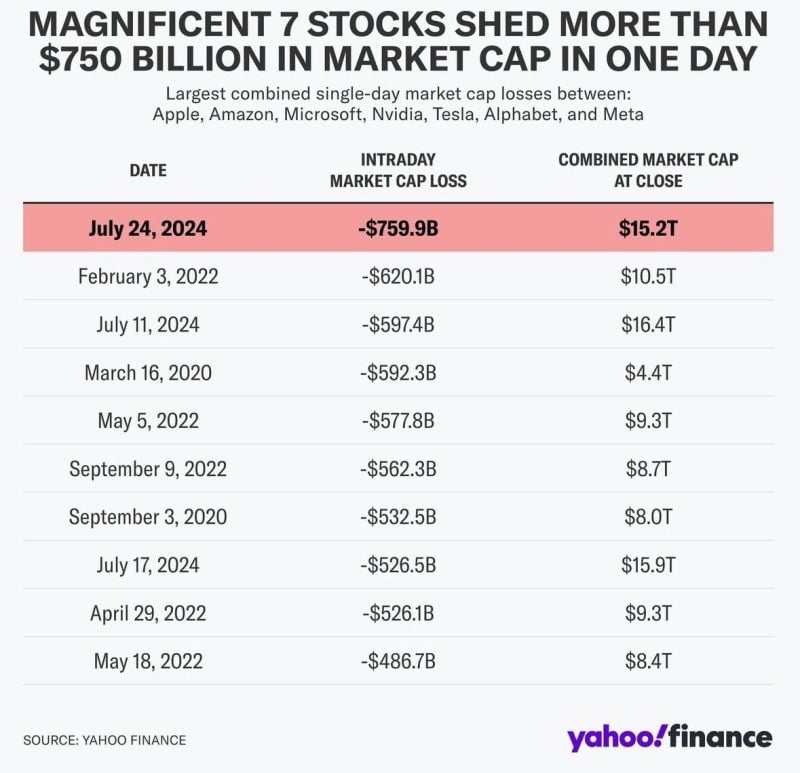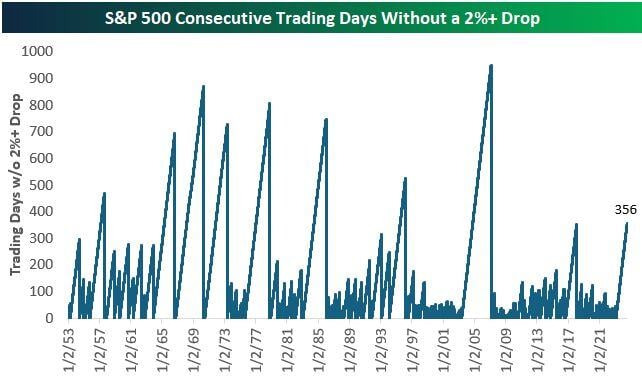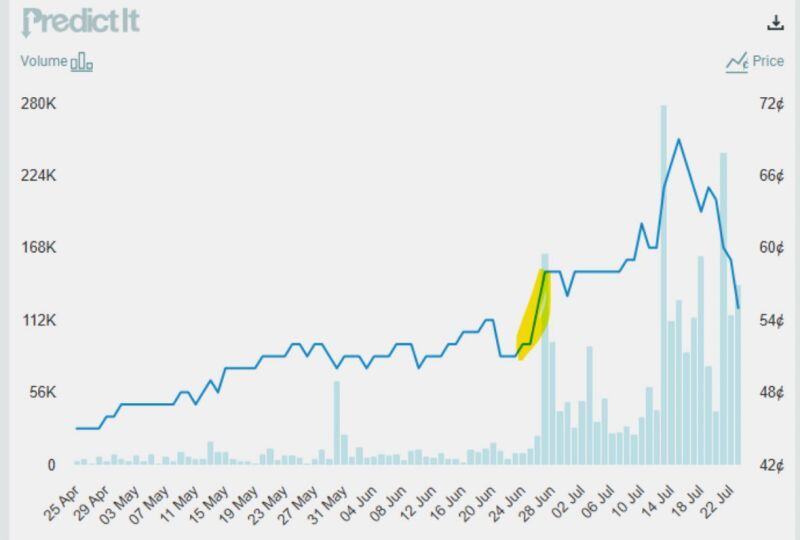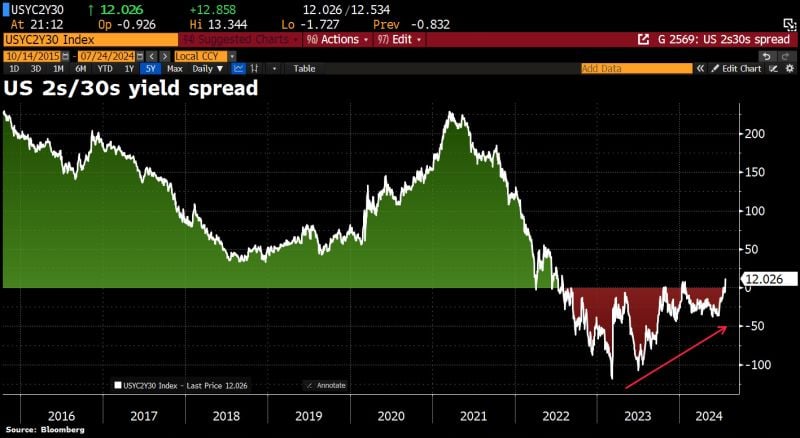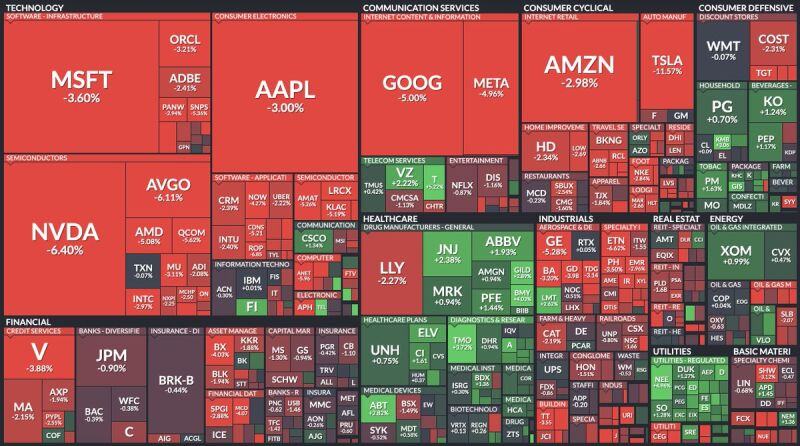Straight from the Desk
Syz the moment
Live feeds, charts, breaking stories, all day long.
- All
- equities
- United States
- Macroeconomics
- Food for Thoughts
- markets
- Central banks
- Fixed Income
- bitcoin
- Asia
- europe
- investing
- geopolitics
- gold
- technical analysis
- Commodities
- Crypto
- AI
- Technology
- nvidia
- ETF
- earnings
- Forex
- china
- Real Estate
- oil
- banking
- Volatility
- energy
- magnificent-7
- apple
- Alternatives
- emerging-markets
- switzerland
- tesla
- United Kingdom
- Middle East
- assetmanagement
- amazon
- microsoft
- russia
- ethereum
- ESG
- meta
- Industrial-production
- bankruptcy
- Healthcare
- Turkey
- Global Markets Outlook
- africa
- Market Outlook
- brics
- performance
The Magnificent 7 dropped by more than $750 Billion yesterday
Source: Evan, Yahoo Finance
Bulls praying to Lord Powell for a rate cut next week
Source; Barchart
Thank you Crowdstrike... that's soooo king of you....
Source: Barchart
Trump odds of winning the Presidential election are BELOW where they were after the debate…
Source: Predictit
The steepening trade continues with US 2s/30s yield spread jumping to 12bps, the highest since 2022.
Source: Bloomberg, HolgerZ
WHAT A DAY...
🌩 Mag 7 stocks all finished in the red today and have erased erased over $500 BILLION of market cap today. ⚡ Nasdaq and S&P 500 had worst their day since 2022 ☄ The S&P 500 just fell over 2% for the first time in 356 trading sessions. It ended the longest stretch without a >2% pullback since 2007 Source: Bloomberg
💪 How to end the meeting madness by Justin Mecham
Meetings can become an endless loop. They drain your time and energy. And the worst part: they can be counterproductive. But, at the same time, meetings are important. So, how can you reclaim those lost hours and convert them into strategic sessions? In a post, Justin Mecham share tips from some of the world's best business minds: 👉 Steve Jobs ↳ Invite only the right people. 👉 Tim Cook ↳ Hold everyone accountable. 👉 Jeff Bezos ↳ Use memos and not slideshows. 👉 Indra Nooyi ↳ Assign tasks before the meeting. 👉 Elon Musk ↳ Ensure everyone is needed in the meeting. 👉 Oprah Winfrey ↳ Prepare all meetings from beginning to end.
Investing with intelligence
Our latest research, commentary and market outlooks


